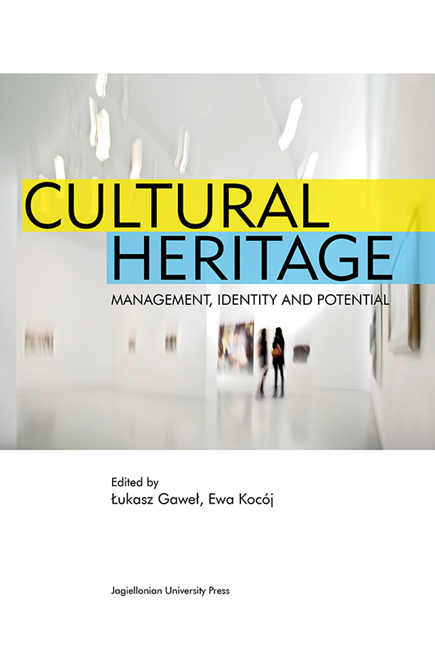Book contents
- Frontmatter
- Contents
- In Lieu of an Introduction
- Towards New Areas of Heritage and Cultural Heritage Management (Introduction)
- Pandora's Box or The Holy Grail? On Managing Cultural Heritage
- Cultural Heritage Within Postmodern Reality
- Legal Protection of Intangible Cultural Heritage. The Concept of the Safeguarding of Expressions of Folklore
- Cultural Heritage as a Shared Resource. The Role of Collaboration Between Stakeholders in Cultural Heritage Management
- Urban Exploring – City – Heritage – Identity
- The Thematisation of Public Space – a Problem or a Necessity?
- Memory for the Future. Managing History Within the Framework of Museums
- Historical Museums: Between Collective Memory and Politics of Historical Memory
- Between Ownness and Alienness: Towards the Dialectic of Cultural Heritage
Legal Protection of Intangible Cultural Heritage. The Concept of the Safeguarding of Expressions of Folklore
Published online by Cambridge University Press: 10 January 2018
- Frontmatter
- Contents
- In Lieu of an Introduction
- Towards New Areas of Heritage and Cultural Heritage Management (Introduction)
- Pandora's Box or The Holy Grail? On Managing Cultural Heritage
- Cultural Heritage Within Postmodern Reality
- Legal Protection of Intangible Cultural Heritage. The Concept of the Safeguarding of Expressions of Folklore
- Cultural Heritage as a Shared Resource. The Role of Collaboration Between Stakeholders in Cultural Heritage Management
- Urban Exploring – City – Heritage – Identity
- The Thematisation of Public Space – a Problem or a Necessity?
- Memory for the Future. Managing History Within the Framework of Museums
- Historical Museums: Between Collective Memory and Politics of Historical Memory
- Between Ownness and Alienness: Towards the Dialectic of Cultural Heritage
Summary
Abstract: The complexity of forms and structures of traditional heritage makes it difficult to create effective tools of legal protection on different levels: national, regional and international. From the beginning of the theoretical concept of safeguarding all aspects of heritage, the question arises whether such protection is needed and what kind of legal instruments and measures would be appropriate. At the international level, the foremost initiative is the WIPO Model Provisions for National Laws on the Protection of Expressions of Folklore Against Illicit Exploitation and Other Prejudicial Actions and UNESCO Convention for the Safeguarding of the Intangible Cultural Heritage, which not only offers the most sophisticated legal definition of intangible cultural heritage and folklore expressions, but also creates a listing mechanism aimed at drawing attention to intangible culture and the need for its safeguarding. Such an analysis would help to answer the questions whether legal protection is required and would be sufficient; and what, if any, are the appropriate analogies in existing law; and whether a sui generis scheme should be developed.
Key words: intangible cultural heritage, folklore, UNESCO, WIPO, international law, protection of traditional culture
The category of “creativity” has evolved over time as an intercultural construct along with the development of humanistic, social and legal thought. Presently, all forms of intellectual and artistic activity are interpreted as the basis of a particular society's spiritual development. The specific character of creativity manifests itself in the ease of its functioning abroad and rising above cultural, social and political barriers. Technological developments have ensured the possibility of use and registration of all forms of cultural resources around the world, including traditional forms of heritage and folklore. The influence of the globalization dynamics, new means of information and communication technology as well as the expansion of the Internet assume the necessity of creating juridical institutions that ensure effective universal protection.
Folklore is an example of the mutual penetration of elements of tangible and intangible heritage which construct cultural codes for a given society. These elements operate together and are created and sustained by individuals as common cultural resources of a particular society. It is obvious that intangible heritage cannot function apart from tangible heritage.
- Type
- Chapter
- Information
- Cultural Heritage - Management, Identity and Potential , pp. 41 - 54Publisher: Jagiellonian University PressPrint publication year: 2015



